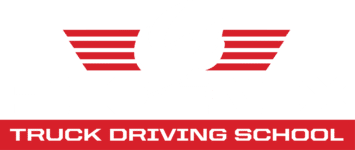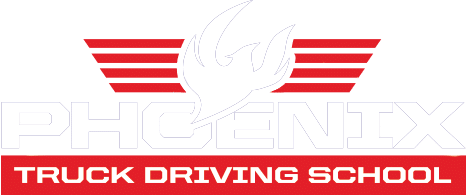On February 7, 2022, the new entry-level driver training (ELDT) requirements from the Federal Motor Carrier Safety Administration (FMCSA) went into effect. Any drivers who are earning their Class A commercial driver’s license (CDL) for the first time, upgrading from a Class B to a Class A, or earning certain endorsements need to complete training that meets these requirements. All of our Phoenix Truck Driving School programs comply with the new regulations and provide you with the training you need to succeed as a trucker.
Recent ELDT Changes
In order to understand how the ELDT requirements have changed, it’s helpful to compare the new regulations to those that were in place previously.
Here are some of the updates:
- In the past, any institutions that met state-level requirements could offer CDL training. Now, the FMCSA requires programs to be a part of their Training Provider Registry (TPR) in order to offer entry-level CDL training.
- Previously, there was not a list of standard topics that students had to learn during training. Under the new ELDT requirements, topics are standardized.
- Before the new regulations went into effect, each state’s Department of Motor Vehicles (DMV) was responsible for administering the written CDL test. Now, training institutions must administer these and report scores to the FMCSA.
What Topics Does CDL Theory Instruction Need to Cover?
Under the new ELDT requirements, there is a list of five categories with various sub-topics for theory instruction. Programs must cover all of these topics and use assessments to determine proficiency. Students must earn an 80% or higher on these assessments. Programs do not need to meet a minimum number of hours for instruction as long as students are able to achieve proficiency in all of the required topics.
The categories for CDL theory instruction are:
- Basic Operations: Students must understand the basics of how to operate a commercial motor vehicle. Sub-topics include control system/dashboard, pre-trip and post-trip inspections, and shifting/operating transmissions.
- Safe Operating Procedures: Safety is essential for CDL drivers and training programs must address topics including how to handle extreme conditions, space/speed management, and nighttime driving.
- Advanced Operating Practices: This category includes training related to hazard perception, skid control/recovery, and railroad-highway grade crossings.
- Vehicle Systems and Reporting Malfunctions: Students will need to know how to identify and diagnose any vehicle malfunctions and will also need to understand vehicle maintenance and roadside inspection requirements.
- Non-Driving Activities: Sub-topics in this category including how to handle and document cargo, hours of service (HOS) requirements, and trip planning.
What Topics Does Behind-the-Wheel Training Need to Cover?
In addition to theory instruction, entry-level training programs must include time behind the wheel, both in a range setting and on public roads. As for theory instruction, there is no minimum for the number of hours, but instructors do need to document total clock hours and cover all necessary topics.
These topics must be covered in a range setting:
- Pre-trip, en route, and post-trip inspections
- Coupling and uncoupling
- Blind side and sight side parallel parking
- Alley dock (45 and 90 degrees), straight line, and off-set backing
Additionally, on-the-road training must address:
- Vehicle controls including how to make lane changes, turn, and enter/exit highways
- Speed/space management
- Hours of service (HOS) regulations
- Visual search
- How to drive safely
- Nighttime driving
- Shifting/transmission
- Railroad crossings
- Communication/signaling
- Hazard perception
- Driving in extreme conditions
- Jackknifing, skid control/recovery, and other emergencies
For topics that cannot be simulated, such as extreme conditions and emergencies, instructors must have two-way conversations with their students. In these conversations, instructors will need to address these situations and how to handle them.
Earn Your CDL With Phoenix Truck Driving School
At Phoenix Truck Driving School, we are committed to providing high-quality truck driver training. We have programs in Arizona, New Mexico, and Texas, and every one of our institutions meets the new ELDT requirements. We can help you get on the road to a new career in the trucking industry.



